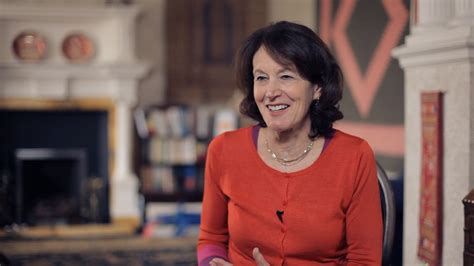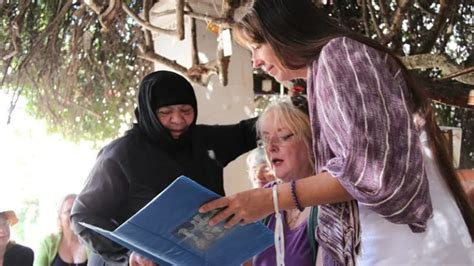A Quote by Ann Hood
I was a daughterless mother. I had nowhere to put the things a mother places on her daughter. The nail polish I used to paint our toenails hardened. Our favorite videos gathered dust. Her small apron was in a box in the attic. Her shoes - the sparkly ones, the leopard rain boots, the ballet slippers - stood in a corner.
Related Quotes
I know also another man who married a widow with several children; and when one of the girls had grown into her teens he insisted on marrying her also, having first by some means won her affections. The mother, however, was much opposed to this marriage, and finally gave up her husband entirely to her daughter; and to this very day the daughter bears children to her stepfather, living as wife in the same house with her mother!
Marisa! Marisa!” The cry was torn from Lord Asriel, and with the snow leopard beside her, with a roaring in her ears, Lyra’s mother stood and found her footing and leapt with all her heart, to hurl herself against the angel and her daemon and her dying lover, and seize those beating wings, and bear them all down together into the abyss.
Her [Eleanor Roosevelt] father was the love of her life. Her father always made her feel wanted, made her feel loved, where her mother made her feel, you know, unloved, judged harshly, never up to par. And she was her father's favorite, and her mother's unfavorite. So her father was the man that she went to for comfort in her imaginings.
As a teenage daughter hears her sweet mother plead unto the Lord that her daughter will be inspired in the selection of her companions, that she will prepare herself for a temple marriage, don't you believe that such a daughter will seek to honor this humble, pleading petition of her mother, whom she so dearly loves?
When my daughter went to school, her last name was mine. The school insisted that her father's name be added to hers, not her mother's. The fact that the mother kept her in her womb for nine months is forgotten. Women don't have an identity. She has her father's name today and will have her husband's tomorrow.
Tereza's mother never stopped reminding her that being a mother meant sacrificing everything. Her words had the ring of truth, backed as they were by the experience of a woman who had lost everything because of her child. Tereza would listen and believe that being a mother was the highest value in life and that being a mother was a great sacrifice. If a mother was Sacrifice personified, then a daughter was Guilt, with no possibility of redress.
The love between a mother and her daughter is special. A mother takes her daughter under her wing and teaches her how to be a woman. In order to do this, you have to ask yourself what it means to be a woman of today. How do you balance care for others with your own quest for meaning and joy in life and how do you pass on these lessons to your daughter?
My great grandfather used to say to his wife, my great-grandmother, who in turn told her daughter, my grandmother, who repeated it to her daughter, my mother, who used to remind her daughter, my own sister, that to talk well and eloquently was a very great art, but that an equally great one was to know the right moment to stop.
But her name was Esmé. She was a girl with long, long, red, red hair. Her mother braided it. The flower shop boy stood behind her and held it in his hand. Her mother cut it off and hung it from a chandelier. She was Queen. Mazishta. Her hair was black and her handmaidens dressed it with pearls and silver pins. Her flesh was golden like the desert. Her flesh was pale like cream. Her eyes were blue. Brown.






































